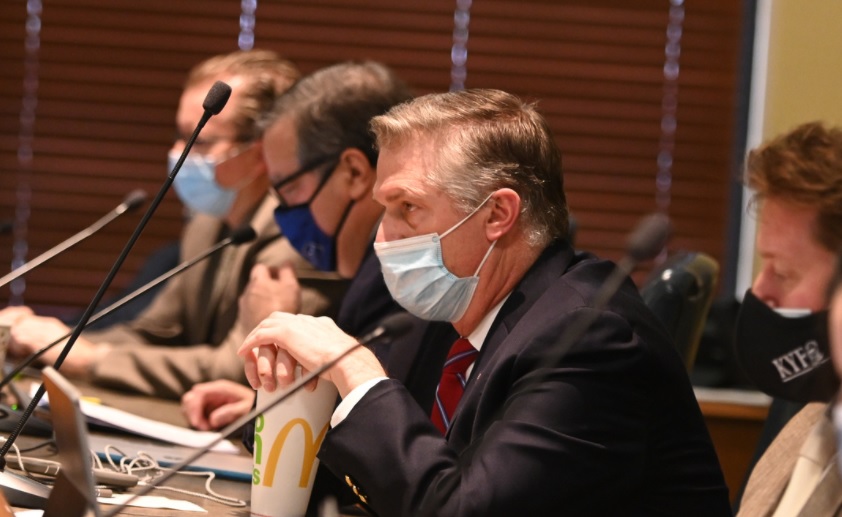CHARLESTON, W.Va. — The House of Delegates and state Senate used a rare early session Saturday to move several bills toward passage that are high on the Republican-controlled legislature’s agenda.
House goes heavy on education
The House of Delegates Education Committee originated and passed a bill aimed at stopping teacher strikes.
The measure would not pay workers for days of a work stoppage. The worker would only be paid when the missed days are made up.
The bill would also not allow a county school system to use banked time to cover days missed during a strike.
A third provision would prohibit extra-curricular activities from taking place when a school is closed because of a work stoppage.
West Virginia teachers and school service personnel went on strike in both 2018 and 2019. The 2018 strike lasted from Feb. 22 to March 7. The 2019 strike lasted for two days.
Saturday’s bill passed the education committee on a party line 16-7 vote and was sent to the full House for consideration.
The committee also passed a resolution calling for a change in the state Constitution to require public education rules, approved by the state Board of Education, to also be approved by the legislature.
MORE Emergency powers bill advancing
HJR 1, now titled the Education Accountability Amendment, passed on a voice vote and was sent to the House Judiciary Committee.

The resolution also had some Democratic backing including that of Del. John Doyle, D-Jefferson.
“I have believed very strongly that we should have something like this on the books in the constitution,” Doyle said. “I believe legislative oversight helps correct some mistakes.”
Other state agencies have to have their rules approved by the legislature but not the state Board of Education. The committee was told Saturday that most states do have some kind of legislative oversight for education rules and policies.
The House Finance Committee approved the Hope Scholarship bill which would allow for the creation of Education Savings Accounts (ESAs).
The bill, HB 2013, would allow for parents to use a state approved vendor to allocate state funds for private school or home school education.
Amy Williard, state Department of Education School Operations Officer, told the committee Saturday approximately $4,624 would be available per student approved for the program. She said it’s estimated the program could shift as much as $23.7 million in state aid for those participating.
Willard said federal funds the state receives for public education would be largely unaffected.
“It shouldn’t impact much of federal funds,” Willard said, adding many of those programs are based on Census information not on the number of enrolled students at a particular school.
The bill has now passed two committees and is on its way to the House floor. It could pass the House next week.

Americans for Prosperity West Virginia State Director Jason Huffman predicted at a news conference earlier this week the bill would be met with approval.
“I believe educational freedom was on the ballot in 2020, ” Huffman said. “There was a considerable effort by opponents of creating more educational options to try to spend a lot of money to take out folks who are in support of more options and those efforts failed resoundingly,”
Senate committee deals with COVID liability
The Senate Judiciary Committee approved the COVID Liability bill, SB 3, on a voice vote Saturday afternoon.

The measure would create immunity for businesses when it comes to COVID-19. The bill, which is now in the form of a committee substitute, does provide several exemptions.
Judiciary Committee Vice Chairman Ryan Weld, R-Brooke, previously said the goal of the bill would be to would aim to curb frivolous lawsuits.
“We had seen it all over the country, suits arise out of covid liability. Other states have taken on covid liability,” Weld said.
Senator Mike Romano, D-Harrison, questioned why the bill was needed. He said he hadn’t seen any lawsuits filed in connection with COVID.
“I don’t one single case but this probably the broadest immunity that I’ve ever seen regarding conduct in my entire career,” h said.

Senator Richard Lindsay, D-Kanawha, said if the bill becomes law it would offer blanket immunity to many. He also expressed concern about the offer of immunity having no end date provided in the bill.
“We could be a year from now and yet this immunity can still be used,” Lindsay said.
The bill now goes to the full Senate for consideration.
There were no legislative meetings scheduled for Sunday.


